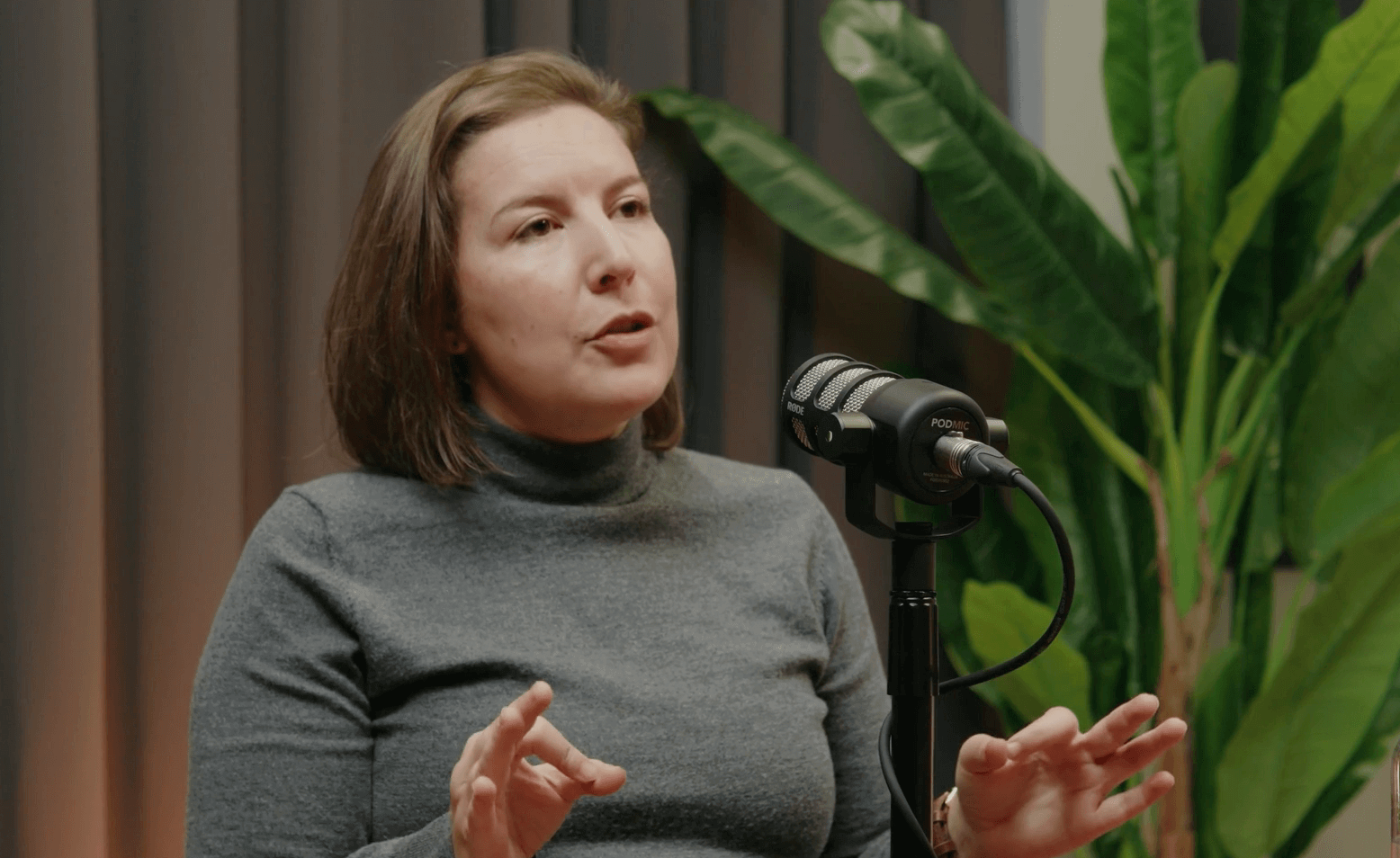Guest: Annie Cyr, Co-founder of Tengiva Inc.
Written by: Claudine Fyfe, President of Fynlam
In this interview (french version only), we explore the journey of Annie Cyr, a visionary entrepreneur revolutionizing textile procurement with TENGIVA. Her expertise and passion for fashion led her to create a digital platform that streamlines transactions between manufacturers and buyers, reducing inefficiencies and accelerating the time-to-market for fabrics.
A Textile Passion Turned Expertise
Coming from a rural background, Annie Cyr developed a fascination for fashion at an early age. After her first fashion show at 17, she studied fashion design in Montreal and later became passionate about textile manufacturing processes at UQAM. An ambitious research project led her to publish a reference book on textile fibers.
Major Challenges in the Textile Industry
The textile industry is a complex ecosystem facing three major challenges:
- Global Fragmentation: Production occurs in multiple scattered stages (cotton, dyeing, assembly), increasing errors and delays.
- Outdated Practices: The use of emails and paper documents slows down decision-making, with a simple fabric procurement process taking months.
- Sustainability Pressure: Regulations require greater material traceability, adding complexity to the supply chain.
Digitalization: A Necessity to Modernize the Textile Industry
According to Annie Cyr, digitalizing the textile supply chain is essential for improving efficiency. Blockchain ensures traceability, while digital marketplaces facilitate transactions between manufacturers and buyers. AI helps anticipate trends and reduce surplus. A striking example: a digital system reduced the number of emails needed to finalize an order from 100 to just 10.
TENGIVA: An Innovative Platform
Annie Cyr co-founded TENGIVA (Textile Exchange Network Generating Innovation Value Accessibility), a revolutionary marketplace that eliminates inefficiencies in the textile sector by:
- Centralizing manufacturers’ data: Each fabric is cataloged with validated specifications before becoming accessible to buyers.
- Facilitating communication: A single interface reduces delays and errors.
- Optimizing sampling: An integrated service ensures sample quality and rapid shipment.
Revolutionizing Textile Sample Management
In the textile industry, physical samples remain essential for evaluating fabric texture and shine. Before TENGIVA, shipping a sample from Sri Lanka to Canada could cost $70 and take over two months.
With TENGIVA, a master sample is centralized, cut, and shipped at a lower cost. This method reduces delays, ensures standardization, and minimizes errors. The platform also provides quality control services, verifying and correcting technical fabric data.
International Collaboration: Key Markets
Annie Cyr identifies three strategic regions for textile innovation:
- Europe: Italy and Turkey combine traditional expertise with new technologies.
- North America: Integrates advanced technological solutions and a modernized supply chain.
- Latin America & Morocco: Show strong growth, particularly in sustainable textiles.
Although Asia remains a dominant player, data management and confidentiality challenges limit its technological adoption.
Sustainable Textile and Digitalization
TENGIVA helps reduce waste and transportation costs by digitalizing procurement processes. Access to traceable and responsible materials is improved, while transparency and transaction speed are enhanced.
The Revival of Quebec’s Textile Industry
Historically, Quebec was a major textile player due to the Lachine Canal, which facilitated dyeing and spinning. However, competition with low-cost producers led to a decline.
In response, Quebec has specialized in technical and high-performance textiles, creating a competitive niche for industrial applications such as construction and insulation.
TENGIVA’s Expansion and Future
Since its launch, TENGIVA has brought together 1,500 manufacturers and buyers across multiple countries and generates over $3 million in annual revenue. The company aims to integrate new technological solutions and expand its offerings to other segments of the supply chain, such as fiber and polymer production.
Its long-term goal is to cover the entire textile supply chain, strengthening the adoption of digital solutions and consolidating its international impact.
Personal Notes
Annie Cyr is a visionary entrepreneur determined to profoundly transform the textile industry. Her expertise and passion led to the creation of TENGIVA, a platform that digitalizes and optimizes the textile supply chain.
By making procurement more efficient, faster, and more sustainable, she positions her company as a key player in the industry’s modernization. Her ambition and perseverance enable her to envision a future where technology completely redefines textile procurement practices on a global scale. Her human qualities convince me that she will succeed in her mission.
Plan, structure, and maximize your performance from the first quarter with our Strategic Guide for Procurement Professionals and Executives. Download it now!



